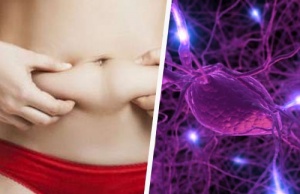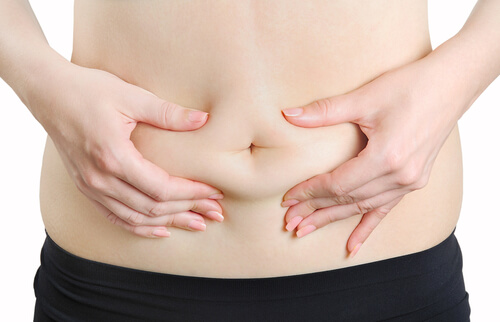Balance your Hormones to Burn Fat

Not everyone is aware of this, but there’s a relationship between hormone production and accumulating weight or fat in the body. That’s why some people jump from diet to diet and kill themselves in the gym, but don’t drop even one ounce. In the following article, learn some ways to balance your hormones.
It’s not just hormones that are responsible for your weight – your metabolism also plays a big role. That is to say, wherever fat gets stored in the body will in turn make you want to eat more. Some hormones could be contributing to your weight gain, so you should address any hormonal imbalances.
Also Read: How the Fast Metabolism Diet Works
Maybe you think that by leaving fast food behind and jogging for half an hour you’ll lose weight, but something else might be interfering with your plan. Just remember that if your hormones aren’t in balance, you may have extreme difficulty losing weight.
Hormone imbalances: to the defendant’s table
It’s important to know the basics about hormones, and surely you’ve heard of them. First of all, hormones are chemical substances that are produced by the body for different functions. Each one has a job. These could be things like the production of energy, alleviation of stress, maintenance of muscle tissue, and yes, the accumulation of fat.
That’s why, for example, many women at some stage in their menstrual cycle or during pregnancy have specific cravings or dietary desires. Having a healthy, balanced hormonal system will help you attain your goals of a healthy weight and an energetic lifestyle.

What to eat and what not to eat to balance your hormones
Stay away from all foods that have a high glycemic index, because those are the ones that encourage cravings and cause you to eat uncontrollably. That means you need to remove (or reduce) things like carbohydrates and refined sugars (bread, rice, pasta, pastries), as well as processed foods that contain multiple additives and preservatives, from your diet.
On the other hand, there are foods you can eat that will not only help you lose weight, but will put you in better health overall. Their low glycemic index is what keeps your hormones balanced, which will have a positive effect on your body and skin.
Foods that offer a good amount of fiber, such as bananas, raisins, artichokes, oats, nuts, and beans, will help improve the state of your digestive system. And don’t forget to drink two liters of water per day (up to three in summer) to increase your metabolism and give your body the amount of fluids it needs to eliminate toxins through urine and perspiration.
Food to reduce fat
Hormones play a role in reducing fat, but diet is very important. A person who produces a large amount of estrogen (female) will typically store more fat, for example. So there’s a specific hormone therapy to achieve balance in each part of the body:
The belly
If your stomach is a little flabby it may not only be because you’re eating too much. Fat stored in the abdomen could be due to excessively high levels of the hormone cortisol (also known as the stress hormone). That’s why people who spend long hours at work or under pressure tend to store fat in this region.
If you balance your hormones, especially cortisol, you may be helping to control your fat content.
Buttocks

One of the things that many women desire a nice derriere, but without being too large. High levels of estrogen production could be affecting your appearance. To counter this effect, eat vegetables belonging to the cruciferous family – like broccoli or cauliflower. They’re rich in phytochemicals that help neutralize this hormone. Other options include flaxseeds, chia seeds, sesame seeds, red grapes, and pomegranate.
All cited sources were thoroughly reviewed by our team to ensure their quality, reliability, currency, and validity. The bibliography of this article was considered reliable and of academic or scientific accuracy.
Klok, M. D., Jakobsdottir, S., & Drent, M. L. (2007). The role of leptin and ghrelin in the regulation of food intake and body weight in humans: A review. Obesity Reviews. https://doi.org/10.1111/j.1467-789X.2006.00270.x
Chang, K. T., Lampe, J. W., Schwarz, Y., Breymeyer, K. L., Noar, K. A., Song, X., & Neuhouser, M. L. (2012). Low glycemic load experimental diet more satiating than high glycemic load diet. Nutrition and Cancer. https://doi.org/10.1080/01635581.2012.676143
Michnovicz, J. J., Adlercreutz, H., & Bradlow, H. L. (1997). Changes in levels of urinary estrogen metabolites after oral indole-3- carbinol treatment in humans. Journal of the National Cancer Institute. https://doi.org/10.1093/jnci/89.10.718
Abraham, S. B., Rubino, D., Sinaii, N., Ramsey, S., & Nieman, L. K. (2013). Cortisol, obesity, and the metabolic syndrome: A cross-sectional study of obese subjects and review of the literature. Obesity. https://doi.org/10.1002/oby.20083
This text is provided for informational purposes only and does not replace consultation with a professional. If in doubt, consult your specialist.








